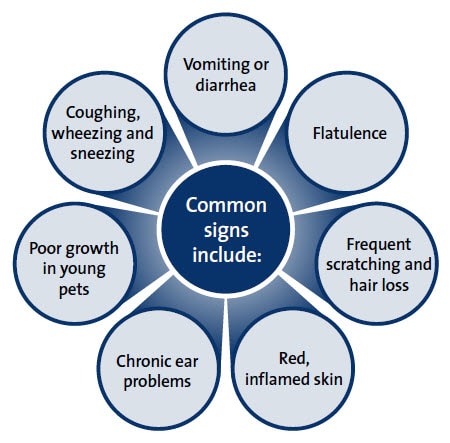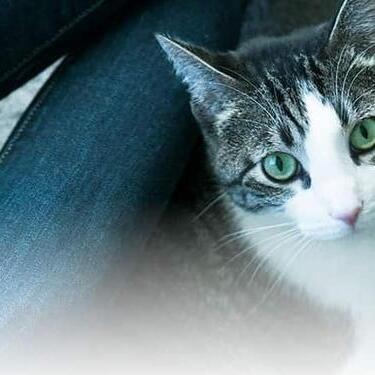
-
Find the right food for your pet
Take this quiz to see which food may be the best for your furry friend.
Find the right food for your pet
Take this quiz to see which food may be the best for your furry friend.
Featured products
 Adult Healthy Cuisine Roasted Chicken, Carrots & Spinach Stew Dog Food
Adult Healthy Cuisine Roasted Chicken, Carrots & Spinach Stew Dog FoodDelicious roasted chicken paired with tender vegetables in a succulent stew
Shop Now Small & Mini Savory Stew with Chicken & Vegetables Dog Food
Small & Mini Savory Stew with Chicken & Vegetables Dog FoodA delicious complement to the nutrition of Science Diet Small & Mini 7+ dog food
Shop Now Adult 7+ Perfect Digestion Chicken, Whole Oats & Brown Rice Recipe Dog Food
Adult 7+ Perfect Digestion Chicken, Whole Oats & Brown Rice Recipe Dog FoodScience Diet's breakthrough nutrition supports ultimate digestive well-being & healthy microbiome for dogs age 7+
Shop NowFeatured products
 Adult Savory Entrée Can Variety Pack Cat Food
Adult Savory Entrée Can Variety Pack Cat FoodPrecisely balanced nutrition with the delicious taste of savory minced chicken to help fuel the energy needs of cats during the prime of their life
Shop Now Adult 7+ Senior Vitality Chicken & Vegetable Stew Cat Food
Adult 7+ Senior Vitality Chicken & Vegetable Stew Cat FoodImproves Everyday Ability to Get Up & Go
Shop Now Adult 7+ Tender Tuna Dinner Cat Food
Adult 7+ Tender Tuna Dinner Cat FoodWith delicious chunks in a decadent gravy
Shop Now -
Dog
- Dog Tips & Articles
-
Health Category
- Weight
- Food & Environmental Sensitivities
- Urinary
- Digestive
- Joint
- Kidney
-
Life Stage
- Puppy Nutrition
- Adult Nutrition
- Senior Nutrition
Cat
- Cat Tips & Articles
-
Health Category
- Weight
- Skin & Food Sensitivities
- Urinary
- Digestive
- Kidney
-
Life Stage
- Kitten Nutrition
- Adult Nutrition
Featured articles
 Do Dogs and Cats have Belly Buttons?
Do Dogs and Cats have Belly Buttons?Learn whether cats & dogs have belly buttons like humans, what the function is, and if there are any health concerns associated with it.
Read More Does My Pet Hate Me?
Does My Pet Hate Me?Learn tips for bonding with your pet if you've ever thought, 'My dog doesn't like me, or 'Why do I have a standoffish cat?'
Read More Why Are Dogs and Cats So Cute?
Why Are Dogs and Cats So Cute?If waggy puppy dog tails and furry kitten yawns make you swoon, you're not alone. Why are cats so cute? And, dogs too! Let's find out!
Read More -


What are food allergies or food intolerance?
Food allergies / intolerance are caused by a reaction to a particular ingredient, which is usually a protein. Sometimes referred to as an ‘adverse reaction to food,’ it is defined as an abnormal response to a food or food additive. There are two classes of adverse reactions: those in which the immune system is involved (generally called food allergies); and those that occur without an immune component (generally called food intolerances).
Allergies may last a lifetime so the ingredient must be permanently removed from your cat’s food.
What causes food allergies or food intolerance?
It may take months or years before your cat develops an allergic response to a particular food. However, once she's allergic, she will almost always have a negative reaction to that food. Allergic reactions are most commonly associated with protein sources – usually the meat in your cat’s food.
Food: The most common causes of food allergies and food intolerance in cats are beef, milk products and fish.
Damage: Inflammation, infection, surgery and some medications can damage the digestive system and may lead to food allergies or food intolerance.
Age: Food allergies and food intolerance can occur at any age.
Breed: Some cat breeds appear more likely to develop food allergies or food intolerance, including Siamese cats.
Is my cat sensitive to foods?
If your cat vomits frequently, has diarrhea, irritated skin, a poor coat condition or hair loss, then she may have a food allergy. The most common symptoms of a food allergy or food intolerance are digestive upset or skin irritation. If your cat has food allergies or food intolerance, you may notice some of the following signs:
- Vomiting or diarrhea
- Flatulence
- Frequent scratching or hair loss
- Red, inflamed skin
- Chronic ear problems
- Poor growth in young dogs
- Coughing, wheezing and sneezing

IMPORTANT: Some symptoms of food allergies or food intolerance are similar to those of other serious conditions so consult your veterinarian if you notice any of these signs.


Tasty Tips
The importance of nutrition
Food allergies or food intolerance may last a lifetime. The main goal in managing allergies or adverse reactions to food is to find and avoid the food ingredient responsible for causing the skin and/or gastrointestinal signs. If your cat suffers from food allergies, it’s even more important to feed the right cat food.
Dietary elimination trials --- removing the ingredient from the food your cat eats --- are the most practical and accurate methods of diagnosing food allergies in cats. The food your cat eats should be balanced and contain as few ingredients and additives as possible. Be mindful to remove access to all other cat food, table food, treats, snacks and chew toys while you are isolating the allergen.
If your cat has an allergic reaction to a certain meat, you may want to try a food with a new protein source - new to your dog, that is - such as duck or venison. If none of this helps, your cat may be allergic to these proteins and will need a food with specially broken-down proteins. For accurate diagnosis and treatment options, always consult your veterinarian and ask them to recommend the best food for your cat’s food allergies
Food Allergy Questions to Ask Your Veterinarian:
- Are there any foods I should avoid giving my cat because of her allergies?
- Ask how human food may affect your cat’s health.
- Would you recommend a Hill’s® Prescription Diet® or Science Diet® cat food for my allergies?
- Ask about special nutritional concerns for your cat
- How much / how often you should feed the recommended food to your cat
- Discuss which treats you can feed your cat with the recommended food
- How quickly should I expect to see signs of improvement in my cat’s condition?
- Can you provide me with written instructions or a handout on food allergies for my cat?
- What is the best way (email/phone) to reach you or your hospital if I have questions?
- Ask if you need a follow-up appointment.
- Ask if a reminder email or notice will be sent.


One of our staff authors prepared this article for you
Related products

Precisely balanced nutrition with the delicious taste of savory minced chicken to help fuel the energy needs of cats during the prime of their life

Improves Everyday Ability to Get Up & Go

With delicious chunks in a decadent gravy

Supports energy level and beautiful fur in mature cats
Related articles

Brushing your cat's teeth is just as important as brushing your own. Learn signs or oral health problems in your cat and how to avoid them.

Discover how to identify cat sensitive skin and what you can do to help your cat thrive from head to paw.

Discover which cat toys games your feline friend might like, and how they are great sources of exercise. Explore our library of articles to learn more.

Discover the benefits of Hill's line of kitten foods and how they provide complete and balance nutrition for growing kittens.

Put your cat on a diet without them knowing
Our low calorie formula helps you control your cat's weight. It's packed with high-quality protein for building lean muscles, and made with purposeful ingredients for a flavorful, nutritious meal. Clinically proven antioxidants, Vitamin C+E, help promote a healthy immune system.
Put your cat on a diet without them knowing
Our low calorie formula helps you control your cat's weight. It's packed with high-quality protein for building lean muscles, and made with purposeful ingredients for a flavorful, nutritious meal. Clinically proven antioxidants, Vitamin C+E, help promote a healthy immune system.

